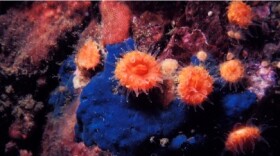Forests and grasslands in Eastern Washington state are at high risk for large, intense wildfire. This spring Washington’s Department of Fish and Wildlife plans to using controlled burning on more than 1,000 acres in Okanogan, Ferry and Pend Oreille counties.
WDFW Prescribed Fire Manager Matt Eberlein said the controlled burns won’t prevent wildfires altogether, but they will reduce potential damage.
“A wildfire in one day could cost a million dollars, but we can go out and burn an area for just a few thousand dollars,” he said.
Funding comes from a combination of federal grants, state capital budget dollars and revenue from commercial timber harvests.
The areas chosen for burning include grasslands as well as Ponderosa pine and Douglas fir forests where debris and slash were left behind after commercial logging.
“If we can put it on the ground in a controlled manner, that’s a lot more favorable than in the middle of the summer when a wildfire comes through a landscape uncontrolled,” Eberlein said. “It’s going to stop where it wants to stop.”
Eberlein said when it’s not severe, fire benefits the landscape.
“Charcoal is an after-product of fire that helps retain water, it puts nutrients back in the soil,” he said. “The fire itself also puts nitrogen and other nutrients back in the soil. It rejuvenates certain browse, or vegetation, that are beneficial to wildlife.”
When to burn depends on weather and smoke management restrictions. The state may also tackle other lands prioritized for controlled burning in the coming months.
Copyright 2018 Northwest News Network







